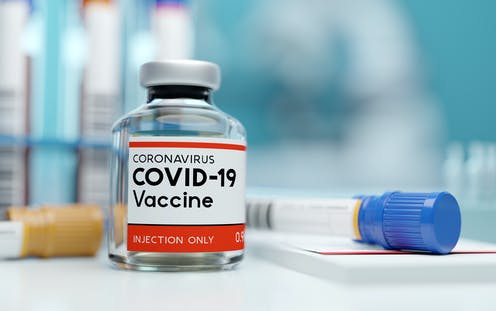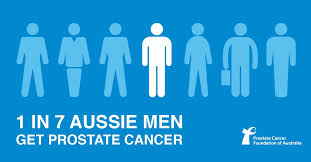
Affinity Insights – Issue 14 December 2020
17/12/2020
Market Update – February 2021
08/02/2021Issue 15, February 2021
From the MDs' Desk

A warm welcome to 2021.
We hope you had a lovely break over the festive season and found time to spend with family and friends. As we settle into the New Year, we are feeling refreshed and ready to see what this year will bring.
Following the positive feedback, our first client presentation of the year will be conducted via an online webinar. Please SAVE THE DATE for the 19th of February for our Market Update Webinar.
The Affinity Team have returned to Collins Street and we cannot wait to see you all in person again sometime soon. For your convenience, future meetings can be either conducted face-to-face in Collins Street or via Zoom. Please inform us of your preference when we contact you to arrange your next meeting.
We do hope you enjoy this issue of Affinity Insights and we welcome any feedback or suggestions for future topics.
From Rodney M. DeGabriele and Tony Vikram
Client Webinar - SAVE THE DATE

Affinity Private Advisors are delighted to invite you to a Market Update Webinar with Drummond Capital Partners.
This is an opportunity to hear from the Drummond Capital Partners team and have your questions ranging from current and future market predictions, the US election, to impacts of COVID-19 answered.
Time: 12:30pm to 1:30pm
Date: Friday 19th February 2021
Venue: Zoom Meeting
RSVP: Friday 12th February 2021
Please save the date – an invitation will be sent next week.
What Does The Biden Administration Hold For Investors?

Joseph Robinette Biden Jr. has officially been sworn in as the 46th President of the United States of America.
It is expected that the first 12-18 months of Biden’s term will be largely spent undoing the Trump administration’s rules with minimal impact on company valuations. However, any meaningful impact on the private sector will likely take some time.
Research house, Morningstar believes a Democrat-controlled Congress will work to provide more stimulus and aim to expand healthcare coverage, primarily within the Affordable Care Act framework. Biden should be able to make faster government appointments with the narrow Democratic majority in the US Senate. However, without a larger majority in Congress, a lot of public policymaking will be left up to executive action.
The president still has a variety of ways to shape domestic public policy if Congress does not pass new legislation or update existing laws.
To read an in-depth analysis of Morningstar’s views on why they think most executive actions will not have major impacts on most companies’ valuations please click here
Does Money Still Make The World Go 'Round?

Since the onset of the coronavirus pandemic, businesses and retailers have implemented a cashless environment in an effort to protect staff and reduce unnecessary physical contact. Phrases such as “Card payments only”, “Contactless Preferred” and “No cash accepted” have become part of the new norm.
The decreased need for cash has seen an accelerated steady downward trend in ATM transactions, cash transactions and the use of cash more generally. In early 2020, the National Audit Office concluded the trend was so significant that there was increasing pressure on the sustainability of the infrastructure for producing and distributing cash. This has led to a number of banks announcing further branch closure programs, due to significant losses experienced in the past few years and their desire to reduce costs.
However, we must not forget that a certain portion of banking customers either do not have access to digital banking or still rely heavily on cash. A report by an Independent Access to Cash Review stated that “technology is often designed for the mass market rather than for the poor, rural or vulnerable.”
On a more macroeconomic scale, in times of emergency, central banks have often printed banknotes to hand out to their governments. Money is another tool used to manage the economy, therefore how these same controls would be utilised in a cashless society is not clear.
The fact of the matter is, the use of cash is declining, and to try and push against the tide seems pointless. The focus must be on harnessing technology to deliver innovative new approaches to overcome the challenges that will face a cashless society. With many organisations already adapting and adopting proven technology, the next 12 months will be crucial to see who will step up and take the lead.
Prediction Consensus: What The Experts See Coming In 2021

Whilst no one can “predict” the future, especially after a year of upheaval. What 2020 has shown us is that uncertainty creates a stronger temptation for us to try to forecast the year ahead.
The infographic table below produced by the team at Visual Capitalist, shows an analysis of over 200 articles, whitepapers, podcasts and interviews; creating the picture of what experts predict for the coming year.

Pfizer/BioNTech COVID-19 Vaccine

The Pfizer/BioNTech vaccine has been provisionally approved by the Therapeutic Goods Administration (TGA) for people 16 years and older. This vaccine requires two doses, 21 days apart.
As part of Australia’s Vaccine and Treatment Strategy, the Australian Government has purchased 10 million doses of the Pfizer/BioNTech vaccine and has the option to purchase more doses. The vaccine will be manufactured overseas.
The first group of Australians will receive a COVID-19 vaccine in February. The Government’s priority is to protect our most vulnerable Australians first and the frontline heroes who are protecting all of us.
The vaccine will be available at 50 hospital sites across the country, and in residential aged care and disability facilities.
COVID-19 vaccines will be rolled out in 5 phases over the coming months. To find out more about the phased approach for the vaccine rollout, click here
Improving The Lives Of Australian Men Living With Prostate Cancer

Prostate cancer is the most common cancer in men, with around 17,000 Australian men diagnosed each year. Over the last few decades, testing and treatments for prostate cancer have made considerable progress, with more prostate cancers now being diagnosed at early stages, and cured.
These advances are entirely due to investment in prostate cancer research: five-year survival is 94% compared with 60% 20 years ago. But it would be better to prevent prostate cancer in the first place. There are few known risk factors for developing prostate cancer: the risk is known to increase with age, and is also higher for men with a family history of the disease. Race is a factor too: African-American men are at highest risk, followed by Caucasians, and Asian men are at lowest risk. But these are not really modifiable.
Physical activity looks like it might be important. In 2019 a study, published in the International Journal of Epidemiology, revealed that being more active reduces the risk of prostate cancer. The study, which included over 140,000 men of which 80,000 had prostate cancer, is the first to show that being active may have a large impact on prostate cancer risk.
Cancer Council Victoria CEO Todd Harper said this prevention research was incredibly important as so far there has been no research-confirmed steps men can take to reduce their risk of prostate cancer, despite it being our most common male cancer.
“By shining a light on physical activity as modifiable risk for prostate cancer, we hope that men will be encouraged to adopt a more active lifestyle.”
If men do develop prostate cancer, they face the problem of thinking about what might be the best option for them. One powerful way to help with this is by registering all men with prostate cancer and following them up over time and asking them how they have gone. This is the idea behind the Prostate Cancer Outcomes Registry – Australia and New Zealand (PCOR-ANZ). This Movember-sponsored research effort led by Monash University allows insights into outcomes that matter to men, and thus guide men and health services to make good choices and to improvements where needed. The PCOR-ANZ is the largest registry of its type in the world, and is endorsed by the Cancer Council, and by the specialist medical colleges. It provides feedback to men and clinicians about what really happens in the real world after prostate cancer treatment.
Information about prostate cancer is available on the Cancer Council website including a guide to the best prostate cancer care and information about screening and reducing your cancer risk.
If you or someone you know has concerns or questions about cancer, you can call Cancer Council on 13 11 20 to speak with a cancer nurse for information and support. The service is open 9–5pm, Monday to Friday, or you can email the Cancer Council at askanurse@cancervic.org.au.
*Article republished with permission from the Cancer Council
Affinity Private Advisors Christmas Party

We capped off last year with a lovely Christmas dinner at Rockpool, toasting to an eventful year full of changes and new learnings. It was great to be able to see each other after almost 11 months of working from home and seeing each other on Zoom. Nothing beats conversations and laughter over delicious food. We hope you all had a festive and enjoyable break, and we look forward to entering this new year together.


